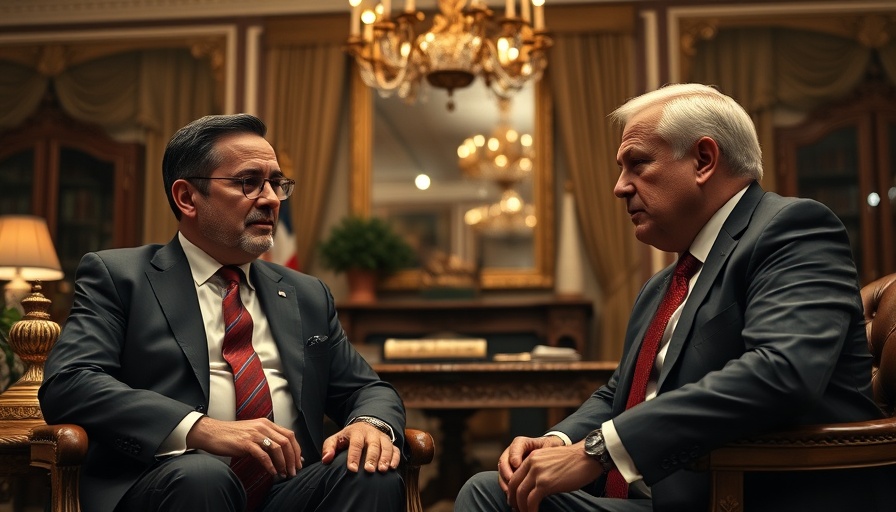
The Parallel Between Past and Present Political Dynamics
In history, moments often repeat themselves, sometimes in surprising ways. A recent article sheds light on the notable similarities between the meeting of President Trump and Ukrainian President Zelensky and conversations from the past, specifically between Benjamin Franklin and King Louis XVI during the American Revolution. This historical parody serves to remind us of the intricacies of political alliances in times of war.
Lessons from Franklin and Louis XVI: Bridging Generations
As Franklin sought help from France in 1781 amid American struggles, he presented an earnest argument for support. He mentioned the plight of the American soldiers and the potential threat Britain posed even to French shores. Similarly, the tension during the Trump-Zelensky meeting reflects the fragility of international relationships where respect and mutual understanding are essential for cooperation. Franklin's calm earnestness contrasts sharply with the emotional exchanges we see in today's volatile political climate.
The Ripple Effect of Political Choices
The discussions between Franklin and Louis XVI brought light to the dire consequences of political decisions. The king's initial dismissiveness came from a place of perceived strength maintained by France, which reminds us how power dynamics can shift swiftly. In today's context, the reactions to Trump’s meeting were mixed—some saw it as disgraceful, while others celebrated it as a demonstration of value-based leadership. These differences highlight how perspectives shape our understanding of political events today's world as considerably as they did back then.
What Can Christian Families Learn Today?
As families deeply rooted in faith grapple with contemporary issues, the lessons from both Franklin and Trump are profound. Just as Franklin reminded Louis XVI of the interdependence required in moments of crisis, families today must recognize the importance of unity and respect in their discussions, standing firm in their beliefs while extending grace to opposing views. It is crucial to foster open dialogue while embodying Christ's love and understanding.
In a world that is often at odds, Christians are encouraged to build bridges rather than walls—learning from history can be our guide. We are reminded that our true citizenship lies in Heaven, and as we navigate through complex political landscapes, let’s approach them with a spirit of humility and service.
Encouraging intergenerational conversations around these themes fosters stronger ties within families and communities. Reflect on how your family can actively engage with the teachings of respect, compassion, and understanding amidst challenging discussions around leadership and politics. Let's bring unity in our dialogues, paving the way for a stronger bond centered on faith.
 Add Row
Add Row  Add
Add 








Write A Comment